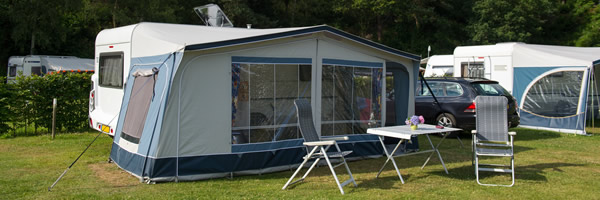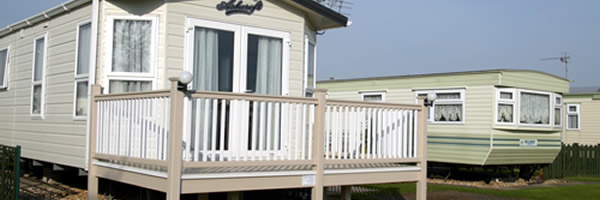Updated June 2024
Contents
Introduction
It seems that more and more people in the UK are discovering the joys of caravanning – whether that means towing your tourer behind the family car or investing in a static caravan as a holiday home.
The owners of any of these kinds of caravan are likely to have invested a significant sum in the purchase, keen to keep the caravan in tip-top condition, and anxious to protect it with the appropriate type and level of caravan insurance.
This brief guide is about precisely that question of insurance for your caravan and looks at:
- what is a touring caravan;
- why you need insurance for it;
- what the insurance covers;
- FAQs about touring caravan insurance;
- what is a static home;
- why you need insurance for a static caravan;
- what the insurance covers; and
- FAQs about static caravan insurance.
As with any brief guide such as this, however, you might still be left with questions, queries and doubts. That might be just the time you want to consult the experts in every type of caravan insurance – those of us here at Cover4Caravans.
What is a touring caravan?

There are legal definitions of a caravan – but these are not especially helpful when it comes to distinguishing a touring caravan from any other kind. Both touring caravans and static homes are classified as Leisure Accommodation Vehicles (LAVs).
A brief history of the touring caravan
Travelling showmen and gypsies took to the roads of Britain in some numbers at the beginning of the nineteenth century. Temporary houses or shelters had been used some time before this by shepherds, who needed to follow their flocks as the moved across the fields and hills of England and Wales.
What is generally recognised as the first leisure or “touring” caravan, however, was made in about 1880 by a Dr Gordon Stables of Bristol. Appropriately named the “Wanderer”, this 18ft caravan was effectively a mobile study in which Dr Stables wrote his books for boys and penned an account of an epic tour of Scotland.
Dr Stables went on to become the first President of the Caravan Club when it was founded in 1907.
From about 1915, touring caravans began to be towed by motor cars, with the first trailer caravan appearing at the Motor Show in 1920. For the remainder of the 1920s and the 1930s the touring caravan began a change in design and appearance that produced some of the most iconic streamlined shapes.
The touring caravan also became associated with a somewhat luxurious, if not glamorous way of living, with makers often supplying bespoke sets of china, cutlery and cooking utensils. Truly upmarket caravans even had baths let into the floor, toilet compartments, gas cookers and on-board radios.
The Second World War saw an interruption in caravan production as manufacturers turned to the war effort. When peace came, the market for the touring caravan had changed. Post-war austerity meant that few people could afford the expense of luxuriously fitted caravans, yet they recognised that this could provide a cheap and relatively accessible form of accommodation for holidays.
Mass production helped lower prices and make caravanning accessible to all.
Why do you need touring caravan insurance?
Insurance is the way to protect the financial investment you have made in your touring caravan – if it is damaged or stolen, insurance is there to compensate you for that loss, so that the costs if repairs may be covered or a replacement caravan bought (less any policy excess which is the first part of any successful claim that you are liable for).
Specialist caravan insurance is necessary since your ordinary motor insurance is most unlikely to provide the cover you need. Some motor insurers, for example, extend cover to a trailer towed by your car, but exclude cover for your caravan. Others might provide third party cover only – allowing you to meet claims from third parties but providing no cover for loss or damage to your caravan. In short, reliance upon your motor insurance to protect your touring caravan is likely to be asking for trouble.
Arranging insurance for your touring caravan
Touring caravans come in all shapes and sizes and insurance needs to be tailored to suit each individual type, together with the individual needs and circumstances of its owner. Caravan insurance is a specialist subject, in other words, and one which you might want to entrust to a specialist provider – such as those of us here at Cover4Caravans.
The cost of your caravan insurance is likely to be affected by a number of factors, of course, including its value, conditions affecting its safety and security, your own insurance claims history, how and where you use your caravan, where it is stored, and what its contents comprise.
A specialist broker is able to advise you just how these different factors combine to build a detailed picture of your precise needs and circumstances. Having identified the needs, the specialist broker is then in a position to apply his expertise and experience of this niche in the insurance market to find the appropriate, matching products available.
What does touring caravan insurance cover?
Just as no two caravans are identical, touring caravan insurance is also tailored to fit the needs of particular types of caravan. Nevertheless, there are a number of common elements in the cover typically provided:
The caravan
- the principal objective is to protect the caravan itself from theft, loss or damage;
- the basis for such cover may be based on the current market value of the caravan (taking into account its depreciation, wear and tear), replacement on a new for old basis, or a “guaranteed value” agreed between you and the insurer;
- the touring caravan’s very mobility contributes to one of the serious risks it faces – theft;
- most insurers therefore require that a hitchlock and wheel clamps are used when the caravan is let unattended but still attached to the towing vehicle and wheel clamps alone are used when it is unhitched;
- storage – out of season when the caravan is not being used – also poses a particular risk, so some insurers, including ourselves at Cover4Caravans, offer a discount on premiums if you use a site registered by the Caravan Storage Site Owners Association (CaSSOA);
The contents
- however long you might have spent kitting out your caravan, it is almost certain that the value of the contents is likely to be appreciable;
- caravan insurance is designed to protect those contents against theft, loss or damage;
Public liability
- this is a risk that might be easily overlooked;
- if someone is injured or has their property damaged because of the way you are using your caravan, you may be held liable and ordered to pay compensation – which might be considerable, depending on the nature and extent of the damage done;
- public liability cover – typically of at least £1 million – may be included in the touring caravan insurance you arrange.
The important thing to remember is the need to tailor your caravan insurance to your particular needs and requirements – an assessment on which you might want the input of a specialist broker.
Touring caravan insurance FAQS
Do I need touring caravan insurance?
Unlike the motor insurance required by law, you are not legally obliged to have separate insurance for your caravan that is being towed (although the law does require that it is maintained in a roadworthy condition).
Given the value of the caravan and its contents, you may be courting trouble if you do not arrange sufficient cover for its repair or replacement in the event of theft, loss or damage.
Does my car insurance cover the caravan?
Insurance policies vary widely, of course, but it is most unlikely that your car insurance extends to the cover you need for your caravan.
Standard motor insurance is likely to provide only third-party cover on any trailer such as a caravan.
Do I need a specialist insurer?
You are likely to find any number of brokers and insurers offering to arrange insurance for your touring caravan.
Only a specialist broker – such as Cover4Caravans – though, is likely to have sufficient expertise and experience to evaluate your particular needs and requirements and to match these most closely to the products available in this niche of the wider insurance market.
Am I covered if I take my caravan to Europe?
Travel within Europe opens up all of the freedom and opportunity of the open road for which touring caravans are so well placed to provide.
Specialist touring caravan insurance is likely to offer that cover throughout continental Europe, although you need to check that this is the case – including any limitations on the length of your trip or the number of days in any one year for which cover extends
What is a static home?

A static home might also go by the name of a static caravan, a holiday caravan or a second home.
It is static because, unlike a touring caravan, it is designed principally to stay in one place, rather than to be moved about on a regular basis. The vast majority of static homes, therefore, are pitched on purpose designed and suitably licensed caravan parks.
A static caravan is typically much larger and weighs more than a touring caravan. Therefore, they are intended to be moved from one place to another by road transporters rather than on their own wheels. The latter are designed solely for manoeuvring the static caravan into place when it is already on site.
Since they are moved from one location to another by road transporter, static homes do not need to meet the same roadworthiness requirements of, say, a touring caravan.
A static unit may be built as either a single or a twin unit. In the case of twin units, these are typically transported by road in two separate sections. Nevertheless, when they arrive on site and are joined together, it must still be possible to divide them again in the future for further transport by road.
Holiday parks
A static home is designed for holidays and breaks away from your usual place of residence but is not intended for you to live in the whole year around.
This restriction is likely to be maintained by the holiday park on which the static caravan is berthed and there may be a period during the year – the winter months, say – when the park closes down altogether.
The choice of location for your holiday or second home is important, therefore, but so too is the lease agreement with the management of the holiday park, which sets out the precise terms and conditions attached to your pitch – including, of course, the annual ground rent which is payable for your use of the pitch.
Why do you need static caravan insurance?
Your need for static caravan insurance is perhaps best answered in the same way as your need for any other kind of insurance – what do you stand to lose in the event of loss or damage?
In the case of a static caravan, your investment is likely to have been quite significant. Yet it is exposed to all manner of risks and perils – including fire, flood damage, storm damage, impacts (from vehicles or falling branches and trees for instance), vandalism and theft or break-ins.
Any one of these events may result in serious damage to your holiday home, or even its complete destruction.
Without adequate insurance, you would need to fund any repair or replacement of this costly item entirely from your own pocket. Static caravan insurance – like other forms of insurance – is designed to put you back in the same position as before any insured event takes place.
Holiday park requirements
Whilst you need static caravan insurance principally for your own protection, you are also likely to find that it is also a requirement of the holiday park on which your second home is berthed.
The requirement is made principally in the interests of other park users, their visitors and members of the public. It relates principally, therefore, to your having sufficient third-party liability cover to meet claims from other holiday home owners and members of the public who may be injured or have their property damaged because of the way in which you are using your static caravan.
You may feel under some pressure from the management of the holiday park to buy such cover from them. Provided you meet the requirement for whatever cover is required and are able to show the management a copy of your insurance certificate, however, in most cases you may typically arrange the insurance with any specialist provider of static caravan insurance you choose.
What does static caravan insurance cover?
Some of the risks and perils to which your static caravan may be exposed have already been mentioned.
Insurance typically focuses, therefore, on the protection of the caravan itself from these serious threats. Insurance cover may be based on the replacement market value of your static home (a valuation which takes into account its age and depreciation over time), replacement on a new for old basis (generally available only for new or nearly new static caravans) or on the basis of an agreed, guaranteed value (effectively, a compromise between market valuation and new for old replacement).
Equally important is insurance cover for the contents of your caravan. As a second or holiday home, the value of the contents may rise appreciably over the years and you might want the protection and reassurance of knowing that they are adequately covered against theft, loss and damage.
The inclusion of public liability insurance has already been mentioned and protects you against potentially very substantial claims from other site users, their visitors or members of the public who may suffer an injury or have their property damaged in an incident for which you are held liable. Public liability insurance typically provides cover for a minimum of £5 million as this is the minimum requirement of Holiday Parks.
One of the attractions of owning a second or holiday home is that you might decide to earn extra cash by letting it out from time to time. Not only is this likely to require the permission of the park’s management but also needs to be reflected in the insurance cover you arrange. In other words, the cover needs to reflect the possibility of your temporarily becoming a landlord to the visiting tenants to whom you let your static caravan – and all of the additional risks this entails.
A final consideration is the fact that your holiday home is going to be left empty and unoccupied for certain – sometimes quite lengthy – periods of time. This is when it may be at its most vulnerable. Specialist static caravan insurance takes into account these periods and may require that you take all necessary precautions to safeguard your holiday home. The security of the holiday park itself may also be taken into account.
Static caravan insurance FAQS
Am I legally required to have static caravan insurance?
There is no such legal requirement, although insurance clearly provides the financial protection you may require against loss or damage.
A minimum of third-party liability cover is also likely to be a requirement of the lease agreement between you and the holiday park on which your static caravan is berthed. This is designed to protect the interests of other site users, their guests and members of the public.
Are all risks covered?
Static caravan insurance may vary quite widely in terms of the risks covered.
The risk of flooding might be a particular case in point. Each winter brings its share of news photographs illustrating the damage caused to caravans in particular when flood waters rise. For that reason, some insurers might exclude this risk from the cover they offer – or charge an increased premium for it.
We advise a careful study of your insurance documents to establish just what is covered – and what is excluded – in your particular policy.
Is new for old cover available?
Again, this is likely to depend on your choice of insurer.
Where new for old replacement is offered in the event of a total loss, this is typically reserved for caravans up to a certain age – say, three to five years old or even 10 years for example.
Is there a maximum value on the static caravan?
Most insurers offer cover on static caravans up to a certain maximum value – £100,000, for example.
The age and value of your caravan is taken into account by the insurer when determining the price of the premiums you pay.
Summary
Specialist insurance may provide essential cover for the caravan in which you have invested.
A caravan may be designed for towing behind your car or to be placed more or less permanently on a pitch at a holiday park. This is the essential distinction between a touring caravan and a static caravan. The distinction is reflected in the different types of insurance required for each.
It might be clear that insuring your caravan may involve a whole host of factors – making the process somewhat less straight forward than you might have imagined. For that reason – and to ensure that you secure the cover suitable for your particular, individual needs and requirements – you might want to draw on the expertise and experience of specialists in both touring and static caravan insurance.
That is the expertise and experience we offer here at Cover4Caravans. If you require any help or clarification on your caravan insurance, or to get a quote, please contact us today on 01702 606301 – we’d be delighted to help!

